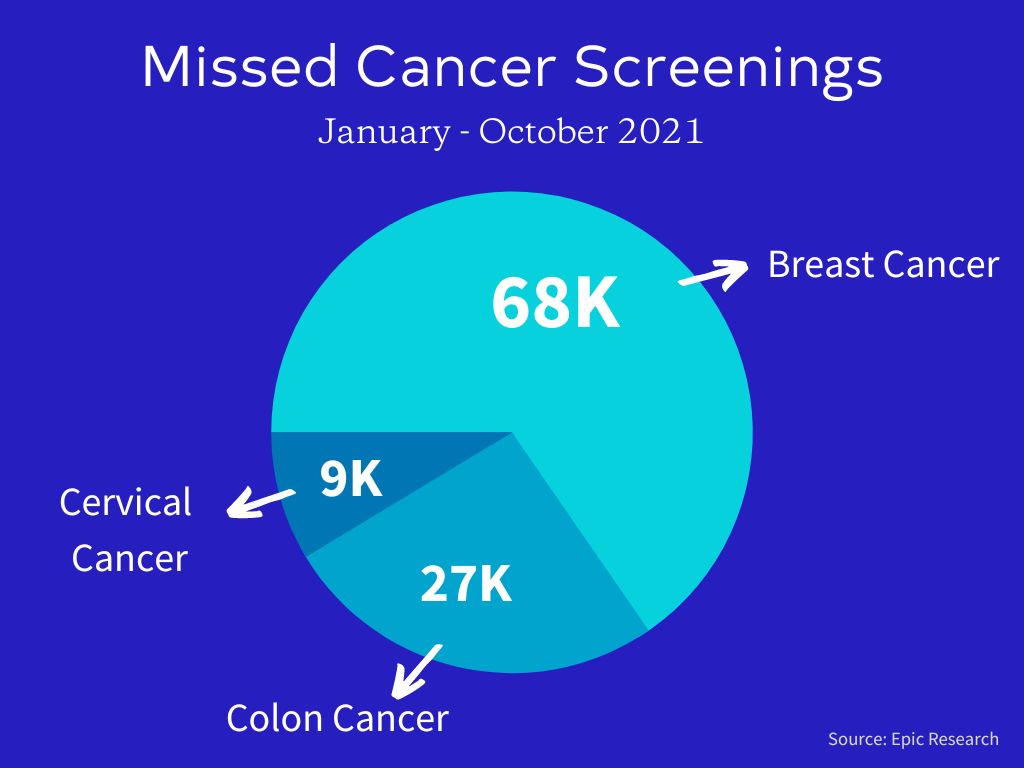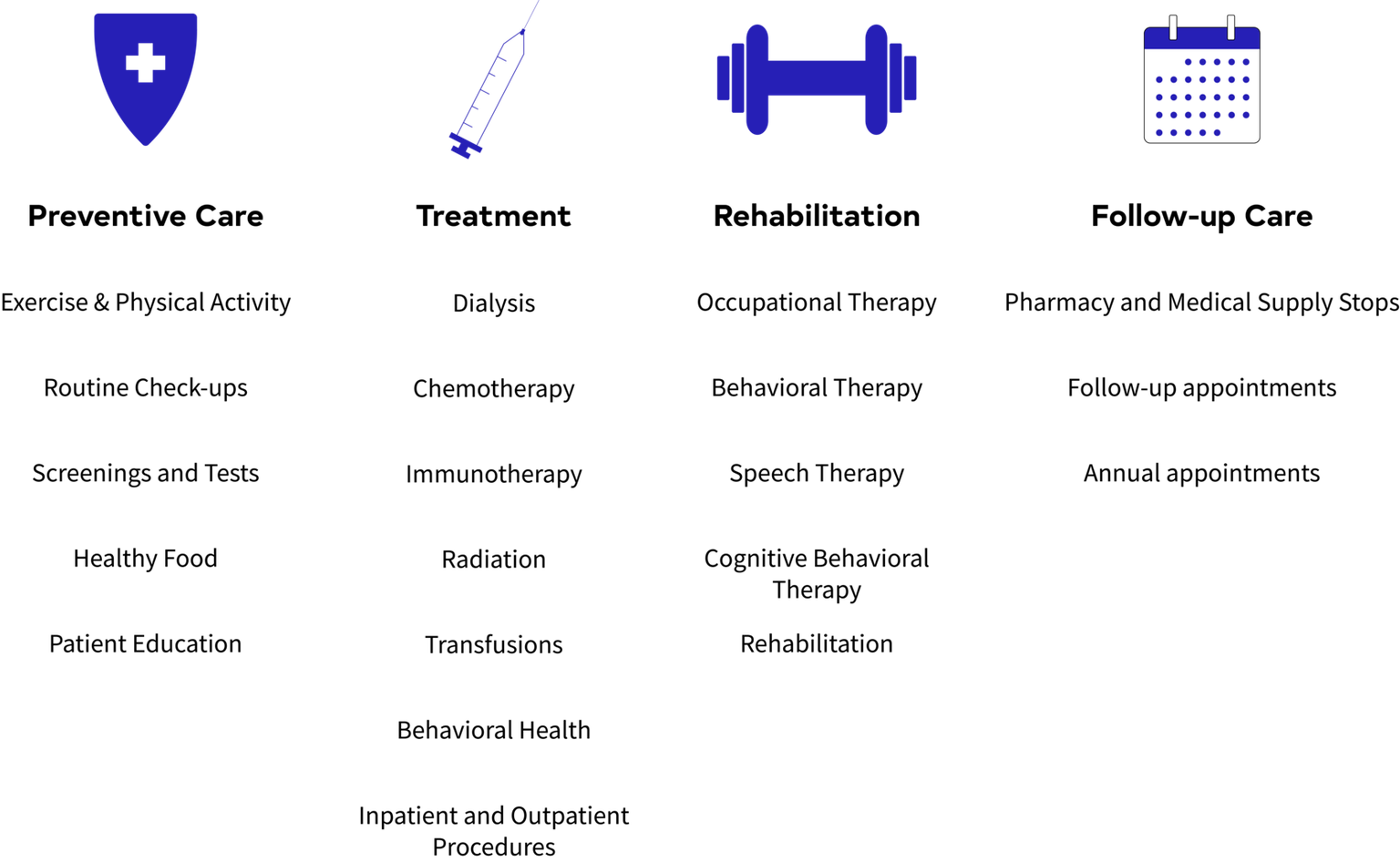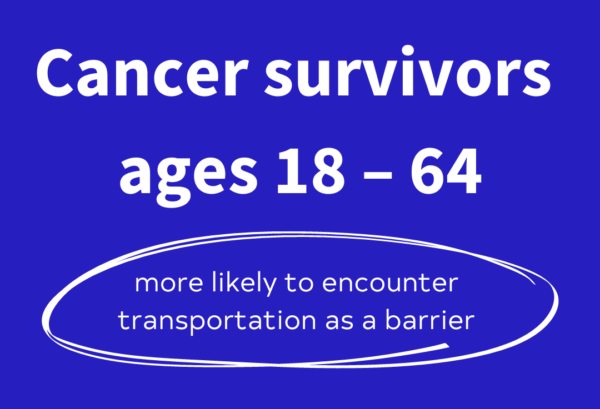Screening & Early Detection of Cancer
Many Americans continue to forgo or delay care, including routine cancer screenings which have yet to reach pre-pandemic baselines. While cancer screenings saw a rebound from the millions missed at the onset of COVID-19, monthly screening rates between January and October 2021 still point to at least 104,000 missed screenings, including 68,000 missed breast cancer screenings, 27,000 missed colon cancer screenings, and 9,000 missed cervical cancer screenings (1). Cancer screenings make early detection of illnesses possible—delaying them may have serious health consequences. It’s worth asking “what barriers are patients facing that prevent getting screened for cancer?”

Cancer Treatment
The same question could be asked for cancer treatment. Barriers to care include access to transportation, proximity to a health center, lack of resources or support, insurance and cost of treatment, and linguistic barriers. Having reliable transportation is so critical that it impacts a patient’s decision to stop or continue cancer treatment (1). Limited access to private vehicles will likely lead patients to stop radiotherapy, while the number of trips and length of trips to a caregiver can influence the decision to stop or continue chemotherapy (1). Patients being treated for cancer often worry about being a burden to caregivers. Having transportation access can ease some of this burden. For those who cannot drive themselves or have no other means of getting to treatment, the American Cancer Society’s Road To Recovery® program recruits volunteers to donate their spare time to give cancer patients a much-needed lift.
Continuity of Care after Cancer
Pre-pandemic research reveals that survivors of cancer also delay healthcare. Cancer survivors have found the strength to beat the second leading cause of death in the world, which is no easy feat. After winning the battle with cancer, many continue to encounter barriers to care for continuity of health. Cancer survivors ages 18 – 64 are more likely to encounter transportation as a barrier than those of the same age with no history of cancer. Transportation barriers are more common among cancer survivors who are not insured, are unmarried, have low income, or have a physical disability.
Transportation is vital at every step—early cancer detection, cancer treatment, and follow-up care.

How Roundtrip Can Help
Roundtrip makes it easy for patients to get the transportation they need to receive cancer screening, treatment, and follow-up care. It is simple and fast for clinical staff to organize transportation on behalf of patients who need a ride to or from their point of care. Patients can also request single or recurring rides depending on their unique cancer care needs. As a result, patients who would have ordinarily missed appointments due to lack of transportation have one less stressor in their journey to recovery.
Roundtrip has teamed up with the American Cancer Society, working to ease the stressful process of transportation coordination and allowing patients to focus on their care and recovery. We have also provided a centralized transportation solution for Sidney Kimmel Cancer Center and become a trusted partner in helping Breathing Room Foundation improve its resource allocation to maximize the patient experience for those in need of transportation assistance.
“We identified a need, and Roundtrip went into this with us together. Roundtrip has become an important, reliable resource for our families. The fact that they can get picked up at their front door and dropped off at their treatment with a kind, considerate driver in a clean car simply makes a world of difference.”
– Mary Ellen Fitzgerald, Director, Breathing Room
At Roundtrip, we are working to ensure that transportation is no longer a barrier to care for anyone — especially for cancer patients.
Sources:
- Etminani-Ghasrodashti R, Kan C, Mozaffarian L. Investigating the Role of Transportation Barriers in Cancer Patients’ Decision Making Regarding the Treatment Process. Transportation Research Record: Journal of the Transportation Research Board. 2021;2675(6):036119812199149. doi:10.1177/0361198121991497
